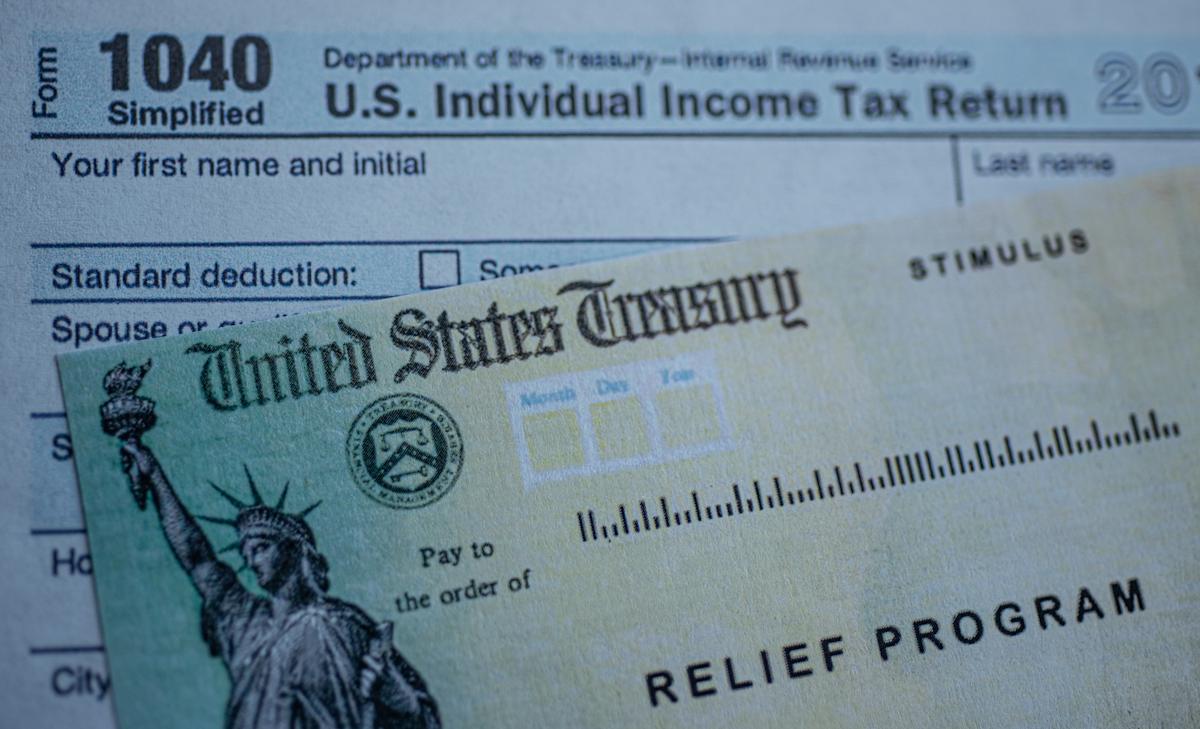Where is my IRS direct deposit relief payment? What you should know.
There are no “relief” payments being issued by direct deposit or check for the remainder of 2025, and none are planned for 2026.
The rumors of $1,390 “stimulus” checks being issued to taxpayers are frequently recurring — and absolutely false. Couched in terminology derived from past or proposed federal and state relief payments for inflation, tax refunds, and even DOGE cost-saving rebates, it has been easy for fraudsters and clickbait artists to entice and mislead the public.
During a wave of disinformation this summer, the IRS posted a warning on X regarding “stimulus check scams,” adding, “the Recovery Rebate Credit has expired.”
The Recovery Rebate Credit was the final round of government-sponsored “Economic Impact Payments” issued in 2021. The deadline to claim the stimulus checks was April 15, 2025. About 1 million checks were issued to taxpayers who had not previously claimed the payments.
The IRS maintains a comprehensive list of scams and tax fraud schemes that taxpayers commonly encounter.
However, even legitimate relief can seem dubious at times.
“The last stimulus checks were during the pandemic, and for taxpayers that didn’t have a bank account on file for direct deposit, they were sent out as gift cards that really did look like a scam,” Crystal Stranger, senior tax director at Optic Tax in Boulder, Colo., told Yahoo Finance.
Read more: Why is my tax refund taking so long?
Michael Cohn, online editor in chief of Accounting Today in New York, has seen and reported on these false rumors repeatedly.
“Tax-related myths and scams seem to proliferate on a regular basis, especially around the tax filing deadlines, but they can spread anytime of the year, especially through social media,” Cohn told Yahoo Finance. “Tax rebates and stimulus checks are a perennial source of speculation, particularly during times of economic uncertainty.”
Cohn suggested anyone in doubt about such potential windfalls should check the IRS’s official website for up-to-date information on which tax breaks and tax credits are still available and the deadlines for applying for them.
It may be helpful to remember that the IRS usually doesn’t call taxpayers. And email and text messages are only used with prior permission — IRS communication is primarily handled by mail. And government-issued payments do not charge “processing fees,” as some scams attempt to charge.
James Creech, a principal with the specialty tax advisory at Baker Tilly in San Francisco, said that one of his focuses at the firm is theft losses due to such scams.
“These scam artists are out of control,” Creech said. “In times of inflation or uncertainty, the promise of a quick $1,200 or $2,500 payment can sound too good to ignore, especially if it comes with a sense of urgency. But once you click a fraudulent link and enter your bank information, the scammers have everything they need to take your money instead of sending it to you.”
Creech added that the IRS will never ask you to enter your bank account information through an unsolicited text, email, or website to claim a payment.
Read more: Where is my refund? How to check your federal tax refund status.
You may have heard of these proposed relief programs. None of them has been put into effect:
-
The DOGE dividend: When President Trump engaged Elon Musk to seek out and reduce wasteful government spending by forming the Department of Government Efficiency, there was talk of issuing $5,000 dividend checks from the savings. The estimated $2 trillion in expected savings is approximately $214 billion as of the last count. There has been no additional talk of dividend checks being issued.
-
The American Worker Rebate: U.S. Senator Josh Hawley of Missouri introduced the legislation, intended to send at least $600 to each adult and child in a household. It remains in the Senate Finance Committee.
-
Tariff revenue rebate: Trump has proposed $1,000 to $2,000 rebate checks from tariff earnings. However, with the Supreme Court challenging the Trump tariffs and the government showdown, this one is a long shot for now.
Read more: What if I can’t pay my taxes? 5 ways to manage your bill.
Without federal relief payments in sight, it is a good idea to check with your state department of revenue or taxation.
New York state initiated a refund check program this year for state taxpayers “who have paid increased sales taxes due to inflation.” Residents who filed a state income tax return in 2023 were eligible, and no action was required — qualified recipients were to receive the one-time checks at the end of September.
Even the New York Department of Taxation and Finance has a website banner warning of scams related to such relief payments.
Other states, including California, Colorado, Florida, Georgia, and New Jersey, have implemented or considered relief payments to residents in various forms.
See Yahoo Finance’s tax hub for everything you need to file your taxes on time



Leave a Comment
Your email address will not be published. Required fields are marked *